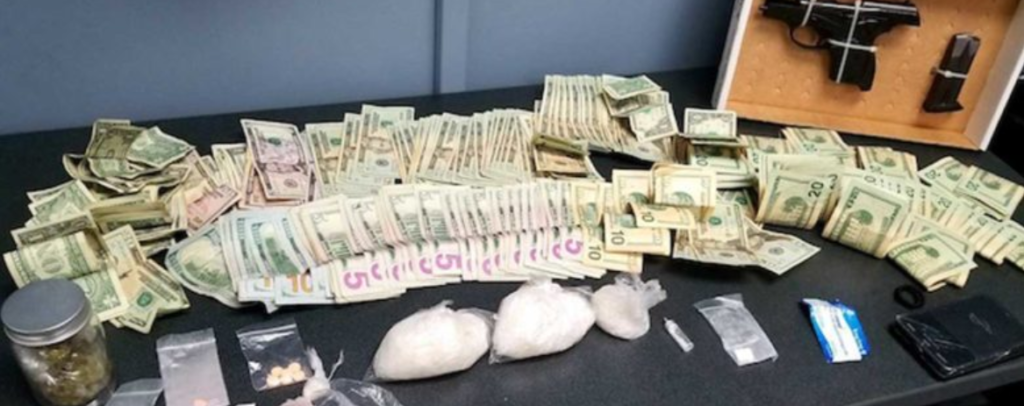Defending 851 Enhancements on Controlled Substance Offenses
Federal criminal defense attorneys are dedicated to the passionate, zealous, and fearless representation of clients charged in the United States District Court with controlled substance charges.

Attorneys who successfully fight charges requiring mandatory minimum sentences.
In a memorandum written by former Attorney General Eric Holder in September of 2014, commonly referred to as the “Holder Memo,” Assistant U.S. Attorneys were instructed not to leverage 21 U.S.C. § 851 enhancements to induce defendants to plead guilty. An 851 Enhancement can increase the mandatory minimum sentence of a defendant charged with a controlled substance offense if they have a prior conviction. Research conducted by Yale Law School recently suggests that at least some federal prosecutors are not consistently complying with this policy.
Section 851 enhancements dramatically increase mandatory minimum sentences for controlled substance offenses. For example, a defendant on a delivery of a controlled substance case subject to an enhancement faces a mandatory minimum that doubles from 10 to 20 years. If there are two prior felony drug convictions, the statutory range increases to mandatory life in prison without the possibility of parole.
What is a “prior felony drug offense”? The crimes that can fall within this classification may even include crimes classified as misdemeanors under state law and convictions that do not result in jail time. Unfortunately, prior offenses that are so old that they are not even calculated as part of the defendant’s criminal history under the Sentencing Guidelines may be counted as long as the offense potentially carried a sentence of more than one year in prison.

The First Step Act
The First Step Act substantially changed how § 851 enhancements operate under federal law and include enhancements on controlled substance offenses. The First Step Act reduced mandatory minimum penalties and changed the conditions under which they apply. The defendant’s prior convictions must meet the new definitions of “serious drug felony” or “serious violent felony.” The defendant must have served a term of imprisonment of more than 12 months on the prior offense and must have been released within 15 years of the current federal offense. In addition, for any “serious drug felony” or a “serious violent felony” based on 18 U.S.C. § 3559(c)(2), the offense must have been punishable by a term of imprisonment of 10 years or more.
“Serious Drug Felony”
An offense committed by a repeat felony, serious drug offender (prohibited by 18 U.S.C. § 924(e)(2)(A)) for which the person served a term of imprisonment of more than 12 months and that person was released within 15 years of the new offense. A “serious drug felony” is an offense carrying a maximum possible sentence of 10 years or more for manufacturing, distributing, or possessing with intent to distribute a controlled substance.
“Serious Violent Felony”
Any violent offense for which the defendant served a term of imprisonment of more than 12 months. Felonies that are automatically “serious” include murder, certain sex offenses, kidnapping, extortion, arson, and certain firearms offenses, among others, or as any offense “that has as an element the use, attempted use, or threatened use of physical force against the person of another or that, by its nature, involves a substantial risk that physical force against the person of another may be used in the course of committing the offense” and has a maximum possible sentence of 10 years or more in prison.

Misuse of the § 851 Enhancements on Controlled Substance Offenses by the United States Attorney’s Office
According to the “Holder Memo,” Assistant United States Attorneys were urged to decline to file an information according to § 851 “unless the defendant is involved in conduct that makes the case appropriate for severe sanctions.” Whether a defendant was entering a plea or going to trial is not supposed to be considered by the Assistant United States Attorney, and the enhancement on controlled substance offenses is not supposed to be used as a bargaining chip to induce a defendant to enter a plea.
Unfortunately, some Assistant United States have disregarded the “Holder Memo” and are making inappropriate use of the threat of an enhancement to manipulate defendants into waiving their constitutional right to a trial.

The Best Defense to a Federal Prosecution is a Strong Offense
Many federal criminal defense lawyers are intimidated by the United States Attorney’s office and several federal judges. The lawyers with Michigan’s premier federal defense law firm, LEWIS & DICKSTEIN, P.L.L.C., have no fear when it comes to protecting their clients from over-zealous federal prosecutors or from federal judges who are seeking to impose unduly harsh prison sentences. When you or a loved one faces a federal prosecution based upon a complaint or indictment, you need LEWIS & DICKSTEIN, P.L.L.C.
Call us today at (248) 263-6800 for a free consultation or complete an online Request for Assistance Form. We will contact you promptly and find a way to help you.











